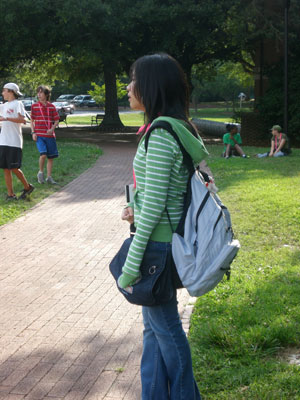All Nonfiction
- Bullying
- Books
- Academic
- Author Interviews
- Celebrity interviews
- College Articles
- College Essays
- Educator of the Year
- Heroes
- Interviews
- Memoir
- Personal Experience
- Sports
- Travel & Culture
All Opinions
- Bullying
- Current Events / Politics
- Discrimination
- Drugs / Alcohol / Smoking
- Entertainment / Celebrities
- Environment
- Love / Relationships
- Movies / Music / TV
- Pop Culture / Trends
- School / College
- Social Issues / Civics
- Spirituality / Religion
- Sports / Hobbies
All Hot Topics
- Bullying
- Community Service
- Environment
- Health
- Letters to the Editor
- Pride & Prejudice
- What Matters
- Back
Summer Guide
- Program Links
- Program Reviews
- Back
College Guide
- College Links
- College Reviews
- College Essays
- College Articles
- Back
Cell Biology and Cancer
It almost seemed as though Mrs. Seanor was speaking another language. Her sentences were full of biology jargon, complete with various abbreviations, numbers, and unpronounceable words. As she elaborated about P53 and TFIIH, I slumped in my seat, confused. This “Cell Biology and Cancer” course at the NJ Governor’s School in the Sciences seemed like it was going to make the next couple weeks painful. Little did I know, the biology class would move me.
It all began my junior year, when my chemistry teacher and parents encouraged me to apply to the Governor’s School, a selective three-week summer program at Drew University. I was excited and anxious for the program, and many of the courses seemed fascinating, focusing on topics like forensics and molecular orbital theory.
When I walked in the doors to my first class, Cell Biology and Cancer, I was full of nervous energy and anticipation. Because of all the positive reviews I had heard about Governor’s School, I had high expectations for the class. However, when it began, I realized my weak biology background was going to be an impediment. I felt out of place in the class; every time Mrs. Seanor would ask a question about transcription factors, apoptosis, or MAP kinase pathways, other students would eagerly share their answers while I remained clueless. My peers who had already taken AP biology were annihilating me in the class.
Though my first impression was not positive, I was not quick to judge the class. As I became acquainted with the other students, I realized I was not alone in my puzzled state of mind. Rather than let my lack of a biology foundation hold me back, I collaborated with others on my homework and projects to try to distinguish genes from one another and make meaning from the endless biology acronyms.
With the help of countless explanations from my friends, packets of cell cycle diagrams, and animations explaining gel electrophoresis, I began to understand, and even enjoy, Cell Biology and Cancer. In that class, I had more fun than I thought possible while acting out the process of initiation for transcription. I did not think that in a matter of days I could become an expert on the role of ubiquitin in cancer. Without the class, I would not know the details of how carbon nanotubes can help detect pancreatic cancer or the phenomenon that naked mole rats cannot get cancer.
When I adjusted to my situation and began to understand the basics, I was able to appreciate the captivating knowledge that the class had to offer. The class was valuable not only for the information I learned, but also for the experience in which I adjusted to the new circumstances. I can only be grateful for Mrs. Seanor’s Cell Biology and Cancer class because it showed me the benefits of being open-minded and welcoming to new situations.

Similar Articles
JOIN THE DISCUSSION
This article has 0 comments.
